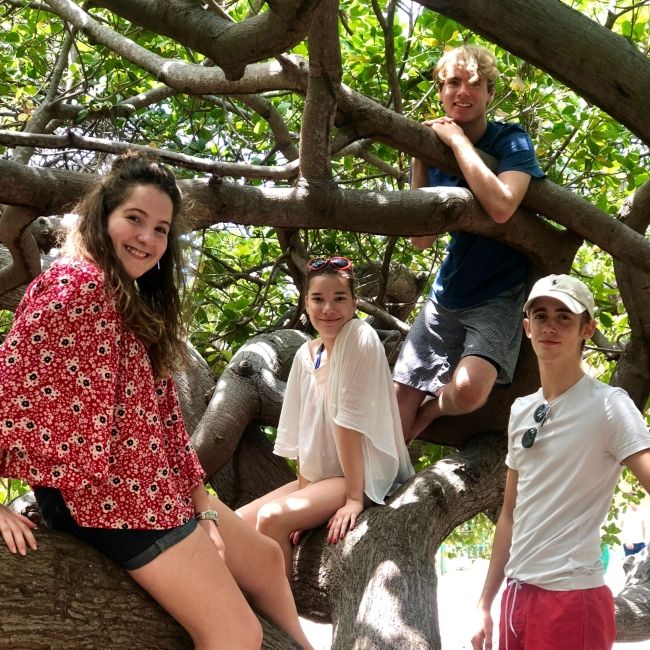Learning Portuguese
Before moving to Brazil, I had almost zero experience with Portuguese. I downloaded the Duolingo app on my phone, but I rarely used it. Until I boarded the plane from LAX to São Paulo I had never actually heard anyone speak the language. At first, Portuguese was overwhelming, but after six months I no longer have any problems with communication. Here are a few tips and tricks for anyone trying to learn a new language abroad.
Take a Class
I had a Portuguese foreign language class when I first got to Brazil. I definitely learned more outside of the classroom, but it was helpful to learn some of the finer points of the language such as proper conjugation and pronunciation. There were other exchange students who took the class with me, so we all learned together. At the end of each day, the teacher would answer any questions we had about Portuguese, which was very helpful.
Write a Journal
I encourage anyone learning a new language to write a journal. At first, you can just use it as a place to keep lists of words and phrases along with their translations, but as you become more proficient you should use it to write in the new language. I write roughly a page each day. The entries are entirely Portuguese and I rarely need to use a dictionary. The journal is also very encouraging because you can track your progress. When I read my first entries, they sound like a third grader wrote them. Now, I don't even remember which words I had to look up when I wrote them.
Tell a Story
I have a German friend here in Brazil who is also an exchange student. The other day he told me about one of the tricks he used to learn more Portuguese. He said every time he got into an Uber he would tell the driver the same story about him being German and about how his life was back home. By telling a story that he was comfortable with, he was able to practice his language skills and gain more confidence to speak in Portuguese.
Listen to Music or Watch TV
Once you learn the basics, translating songs or short videos can be a great way to practice a new language. Watching TV and listening to music are good ways to learn some of the less formal words and grammar. Class is great, but you don't want to speak like a college professor all the time. Sometimes a little bit of music is all you need to sound like a local.
Talk!
Practice is important. The more you talk and listen, the more you will learn. Spend some time talking to your classmates or host family each day and you will become much better at speaking your new language.
Make sure that you are always open to suggestions. If you are just now learning a new language, then a lot of other people already speak it better than you. Listen to what they tell you and try to mimic their speech patterns. Don't forget that everyone learns at a different speed. Some people will be fluent in two months and some people with still make mistakes after six months. Do not worry about how long it is taking you to learn. You will get there eventually.
Related Posts

Friendly Conversation With the Brazilian Locals
How hiding from the rain turned into a well-spent afternoon filled with human connection. Last week, I took a trip with a few other exchange students to a fishing village... keep reading

Making Brazilian Friends
On the flight here, I got pretty nervous about making new friends. Would the locals be able to speak English with me? If they could, would they like me? What... keep reading

Brazilian Culture and Customs
CIEE is not currently offering programs in Brazil, but check out our other programs around the world. I expected the Brazilian culture to be different from the American culture I... keep reading

